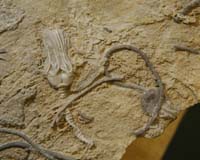| . |  |
. |
Doha (AFP) March 16, 2010 Demand in China is stoking a black market in neighbouring Myanmar in tiger-bone wine, leopard skins, bear bile and other products made from endangered species, a report released on Tuesday said. "China's border areas have long been considered a hotbed for illegal trade, with remote locations often making surveillance difficult in sparsely populated areas," Xu Hongfa, top China investigator for environmental group TRAFFIC, said in the report. Enforcement efforts within China appear to have curtailed the open sale of many animal parts and products taken from species banned under the Convention on International Trade in Endangered Species (CITES), he said. Market surveys in 18 Western Chinese cities in 2008 found only two sites where tiger and snow leopard skins were on sale, far less than in previous years, said Xu. But transactions may have simply moved underground and onto the Internet, and Myanmar has emerged as a fast-growing supply node. "There is clearly ongoing demand for leopard and tiger products, but the trade appears to be becoming less visible year-on-year," Xu said. "The current trade is more covert, organised and insidious, making it harder to detect and crack down on." TRAFFIC said that in December 2008, its investigators checked three markets on the Chinese side of the border in Yunnan Province, and one in Mongla, a town in Special Region 4 of Myanmar's Eastern Shan state. Markets on the Chinese side were legal, but one and a half kilometres (a mile) across the border they found a grim range of wildlife products sold by Chinese merchants. These included a clouded leopard skin, pieces of elephant skin, batches of bear bile extracted from live animals, a dead silver pheasant, a monitor lizard and a bear paw, which is considered a delicacy in Chinese cuisine. Nearby, another shop specialised in "tiger-bone wine" costing 88 dollars (64 euros) for a small bottle. The shop owner said buyers were mostly Chinese tourists, and customers could order the supposedly health-boosting tonic by phone for delivery to Daluo, a river-port town in China. Like China, Myanmar also had national laws forbidding trade in endangered species. "But enforcement is non-existent in Special Region 4 as it is an autonomous state... controlled by the National Democratic Alliance Army," a rebel group, said Xu Ling, the China programme officer for TRAFFIC, who did the survey. The 175-member CITES, meeting in Qatar's capital Doha until March 25, will review measures to boost enforcement of wildlife bans already in place, as well as proposals to halt or limit commerce in species not yet covered by the Convention.
Share This Article With Planet Earth
Related Links Darwin Today At TerraDaily.com
 How Sea Lilies Got Their Get-Up-And-Go
How Sea Lilies Got Their Get-Up-And-GoAnn Arbor MI (SPX) Mar 16, 2010 Nature abounds with examples of evolutionary arms races. Certain marine snails, for example, evolved thick shells and spines to avoid be eaten, but crabs and fish foiled the snails by developing shell-crushing claws and jaws. Common as such interactions may be, it's often difficult to trace their origins back in evolutionary time. Now, a study by University of Michigan paleontologist Tomas ... read more |
|
| The content herein, unless otherwise known to be public domain, are Copyright 1995-2010 - SpaceDaily. AFP and UPI Wire Stories are copyright Agence France-Presse and United Press International. ESA Portal Reports are copyright European Space Agency. All NASA sourced material is public domain. Additional copyrights may apply in whole or part to other bona fide parties. Advertising does not imply endorsement,agreement or approval of any opinions, statements or information provided by SpaceDaily on any Web page published or hosted by SpaceDaily. Privacy Statement |